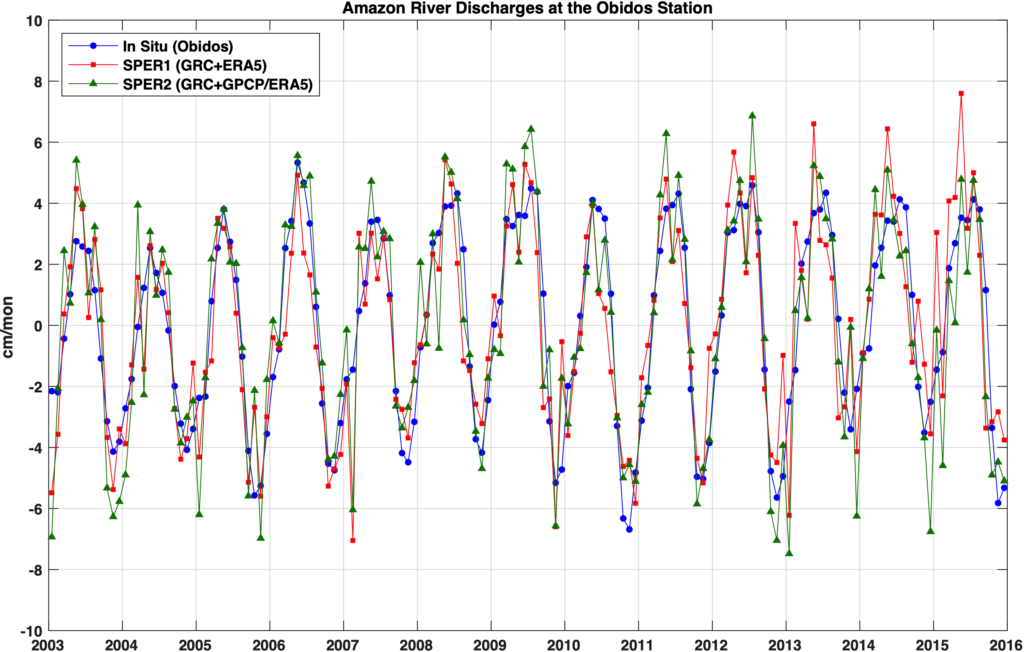
A group of researchers led by Dr. Jianli Chen at the Center for Space Research published a new study in Water Resources Research (https://doi.org/10.1029/2020WR028032). The Gravity Recovery and Climate Experiment (GRACE) satellite gravimetry provides a revolutionary means for monitoring and measuring global mass redistribution and movement with unprecedented accuracy. Combining GRACE observed terrestrial water storage with precipitation and evapotranspiration data from satellite remote sensing and climate model prediction enables the quantification of river runoff at basin, continental and global scales. Dr. Chen and his colleagues carried out a case study in Amazon, the largest drainage basin in the world (the massive Amazon river system runoff accounts for ~20% of global total river runoff to the oceans). River runoff is estimated as a water budget residual using GRACE terrestrial water storage change, ERA5 reanalysis data, and satellite precipitation observations for January 2003 through December 2015 for the Obidos upstream drainage basin and for the entire Amazon basin. Estimated runoff based on the water budget closure method agrees remarkably well with in situ gauge observations at Obidos. This study not only demonstrates the great potentials of GRACE satellite gravimetry in measuring water mass change and redistribution in the global water cycle, but also provides important validation of climate model predictions. The ERA5 model appears to overestimate long-term mean evapotranspiration in the Amazon by ~2 cm/month based on comparisons with GRACE, precipitation, and runoff observations. This study also suggests that GRACE satellite gravity measurements, combined with other independent data offer a unique means to detect and quantify submarine runoff from the Amazon basin that cannot be captured by surface river gauges.
